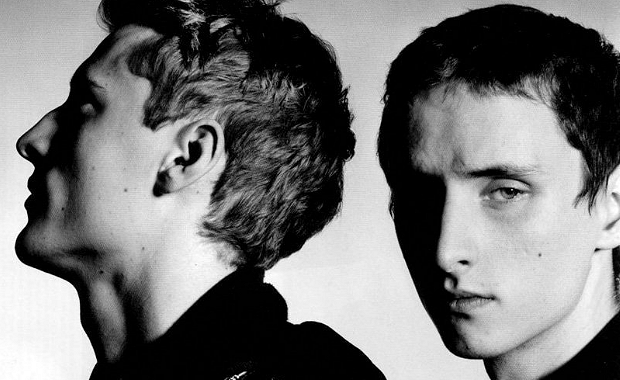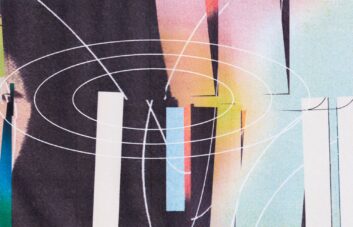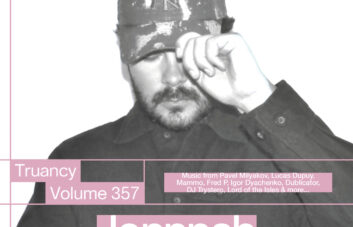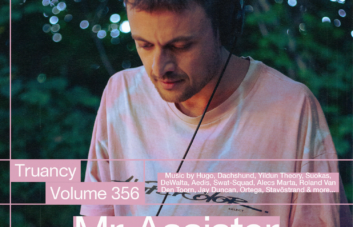The adept British quartet These New Puritans released their second album Hidden at the beginning of this year, and it is an album that uprightly interchanges between theatrical caprice and a grimy accent of sounds. The characteristic air of this album is much more symphonious and grander than their debut album Beat Pyramid: the sophomore album has hearty vocals, an overture of flutes, horns, harpsichords and xylophones, choirs, kumi-daiko, sounds of gleaming swords and stirring tribal drums that sometimes border on the sound of dance hall beats. The constantly diversifying tenses of Hidden have a lot more dissimilarity in store for the auditor than their debut and it’s in itself a thrilling crusade. Whereas the assemblage has been compared to a tiresome amount of post-punk bands over time, These New Puritans have finally constituted an evident sound to stand on its own and have grown tenfold as a band entity. The first video off Hidden, We Want War, is an overwhelming and artistically coherent performance that causes some of the viewers to have ‘religious experiences’ and gets most of the people who first see it to smack their keyboards and repeatedly watch the atmospheric gem in little time. Singer and wellspring of the band, Jack Barnett, sat down with us to field our questions about the similarities and differences between the first and second album, the recording process, Lil’ Wayne and the sixteenth century.
Download: These New Puritans – We Want War (SBTRKT Remix) (320 kbps)
Hey, how have you been? Jack Barnett: Not bad, thank you! We just drove for two days to get here. We departed from Toulon, a city in the South of France. It’s been a quite while since we last played Amsterdam. We’ve been travelling a lot lately, it’s been good!
Has the recording process for Hidden been much different from Beat Pyramid? It has been really different. We’ve all learned our lessons from the first album. That one was a split between live performance by us and samples. We used to have this kind of hip-hop approach, whereas this one has been the opposite from most of our previous recordings. It has almost been like a military operation as we knew exactly what we had to do and then composed everything. Everything was planned precisely and we recorded everything really quickly. There’s none of us playing altogether on the record. We even flew to Prague for one day just to record some bits of the percussion and we literally recorded half of the album in six hours, in one go. There’s not so much a theme to this album as there was to the first one, really. The details were almost more important than the music with our first album whereas Hidden is a lot more open-ended and less strict. A lot more emotional in a way as well, I think. There are things that are out of reach. Things that are far away, like stars and the bottom of the sea. It’s a lot more ambiguous I think and I prefer it that way.
Rhythm was the core element for your debut Beat Pyramid. We’ve noticed that for Hidden, you focused more on melody for Hidden. Did you do this deliberately? I don’t know. It’s definitely more harmonically complicated and I sing a lot, which is kind of funny. In fact, this might be the last time I ever sing. I feel like I’ve done all the singing I can do, I’ve used my voice in every possible way on this album! From now on I’ll just leave it to the people who can really sing. I think that on the third album we might actually get a different guest singer for every song. George really wants Neneh Cherry to sing on one of our songs and Richard Sinclair from Caravan and Camel would be lovely too.
Do you ever wish you could go back and change things on Beat Pyramid? I did want to when we first finished recorded it. I’m never really content with my old material. Even now with Hidden. It’s quite good but there are things that I would change now. Whenever I finish something, I always find something I want to change in it. I feel like I could do a lot better with it the next time but I’m sure that afterwards I feel like I could do a lot better again. I have other stuff to do now. I’ve already started working on the third one actually, I just started writing it.
For Beat Pyramid you had some unexpected influences such as J. Dilla, Wu-Tang Clan and Missy Elliot. Who have been an influence for Hidden? A lot of Jamaican dancehall, which is actually the music that has inspired people like Missy Elliot. I prefer modern dancehall, especially rhythmically. Almost all the rhythms on Hidden owe something to that kind of thing. As well as the English composer Benjamin Britton, he’s excellent! We owe a lot of the sort of melancholy stuff to him but also the sort of brute rhythmic thing. Bangladesh – the producer who produced the song Videophone by Beyoncé and Lady Gaga, is pretty good. And I love A Milli by Lil’ Wayne. Wayne’s a great producer and has great textures in his music. All our sub-bass stuff is drawn from that. I always think that the best textures in music are going on in pop music now. I don’t think there’s any innovation in rock music right now. It’s all kind of the same and has been the same for the past twenty years or so.
Do you have a new chain-mail type of thing in store for us? I’ve got this tunic that I could wear. But no, that’s George’s job. He needs to come up with something!
You’ve been on several tours so far, what were the worst moments? The worst moment was just some terrible gig we played in Germany quite recently, it was just awful. It was the most idiotic audience ever! It’s funny because the definition of what we think is a good audience is kind of changing. Before I liked audiences that were physically active the most, but that isn’t always the best way of judging with kind of music we’re doing now. Nowadays it’s harder to tell for us whether it was a good audience or not, really.
How would you define success for These New Puritans? In the end, survival is the main goal of the band. It’s not easy for small bands to keep their heads up currently. Or whatever bands that aren’t Muse, haha. We just want to get as good as possible and as kind of affective as possible, just to put something across. I don’t know what defines These New Puritans yet. There’s something more to it, isn’t there? I always think the best things about these appearances is the bit you can’t quite explain. If you got a musical idea that you can just write down in words then there’s no point in doing it in music. There has to has something unexplainable about music, that’s what makes it good.
What are you currently listening to yourself? I’m listening to Van der Graaf Generator a lot. There’s a Dutch band called Focus I really love at the moment too as well as medieval English music. It’s really great because it lived and died in the area I live in. You can really hear the influence of the landscape in it. Very melancholic, it’s great. The new Lil’ Wayne album, I haven’t heard it actually. It’s apparently a hip-hop/rock album. The hip-hop idea of rock is just terrible. It doesn’t work the other way around either. The idea most rockers have of hip-hop is, eh. It never works. Myself, I’m starting to write music for steel drums. It isn’t the happy steel drum kind of music though. I’ve also started writing an opera, a mini one. But I’m just taking the ideas I have for my opera and use them for These New Puritans since it’s just too big of a project. I’d just better use those ideas for These New Puritans songs but it’s coming along well.
Which places do inspire you? I really liked Iceland. In a weird way, Iceland is a lot like where I’m from, Essex. Not so much Southend, but that area. Which a lot of people will think is a weird thing to say but they’re both similar and desolate in their landscape. Quite strange and marshy landscape. Very harsh, a lot of it hasn’t even been inhabited for the past 100 years. The entire Southend thing, we’re so much different from all the bands from there. It’s not really the right classification for us.
If These New Puritans could be reborn in any given historic era, which one would you choose and why? I’d like some sort of cross between the near future, and the sixteenth century. Is that why you wrote c16th? Haha, probably. I forgot about the existence of that song actually. It would be great to live and be a musician in the sixteenth century but also have the recording technology of now. You could just skip out all the time in between because nothing really important happened in between. The music, the sound, from then was really good. That was before the harmonic theories governed music. If you could be able to sort of use beats and stuff from now, that would be a lovely combination!
(Download via The Fader)





Yes. YES.